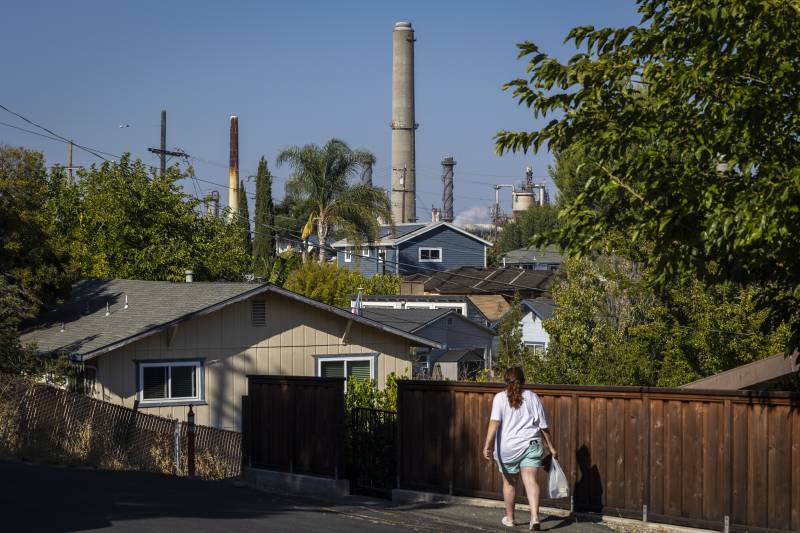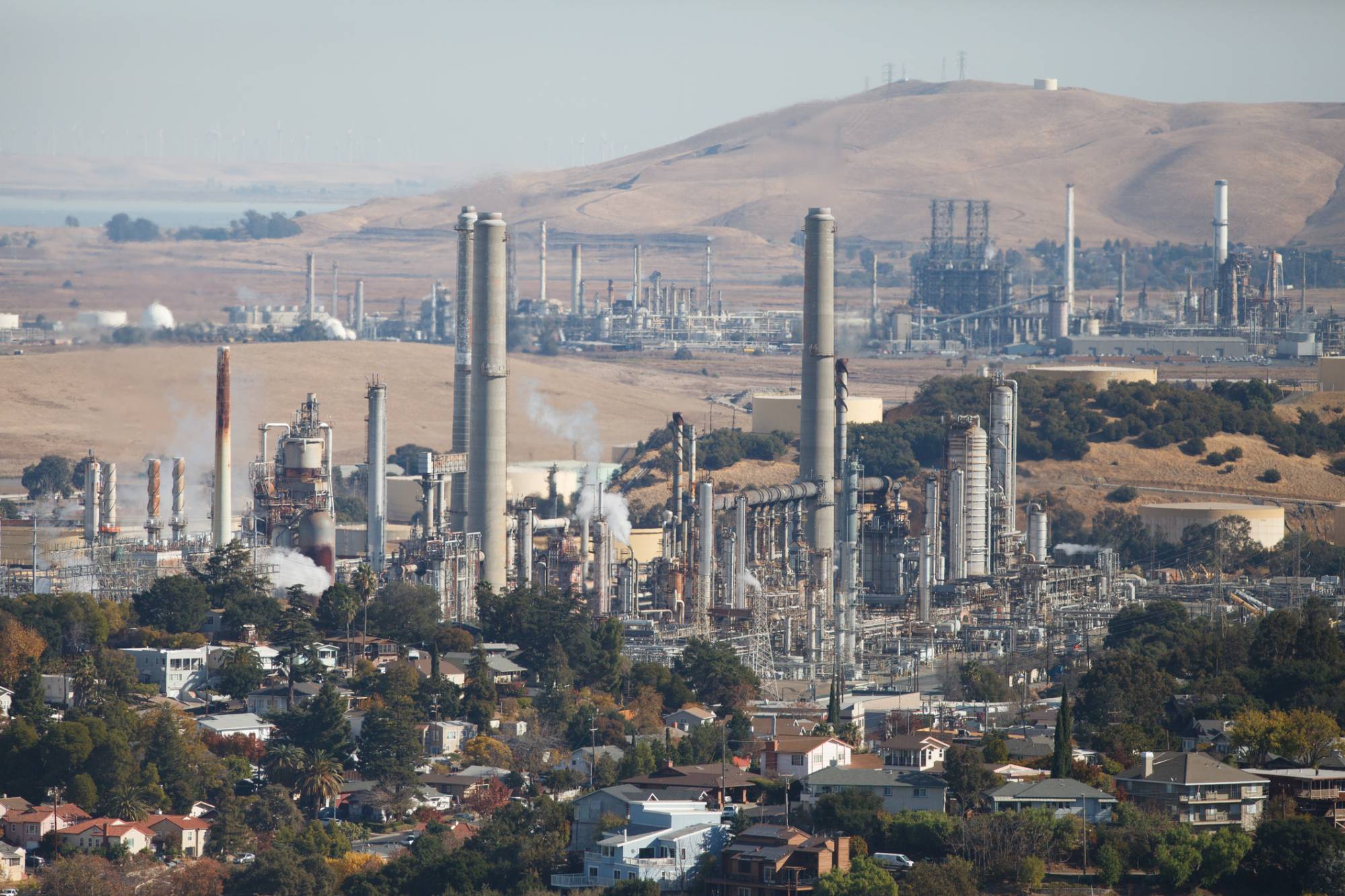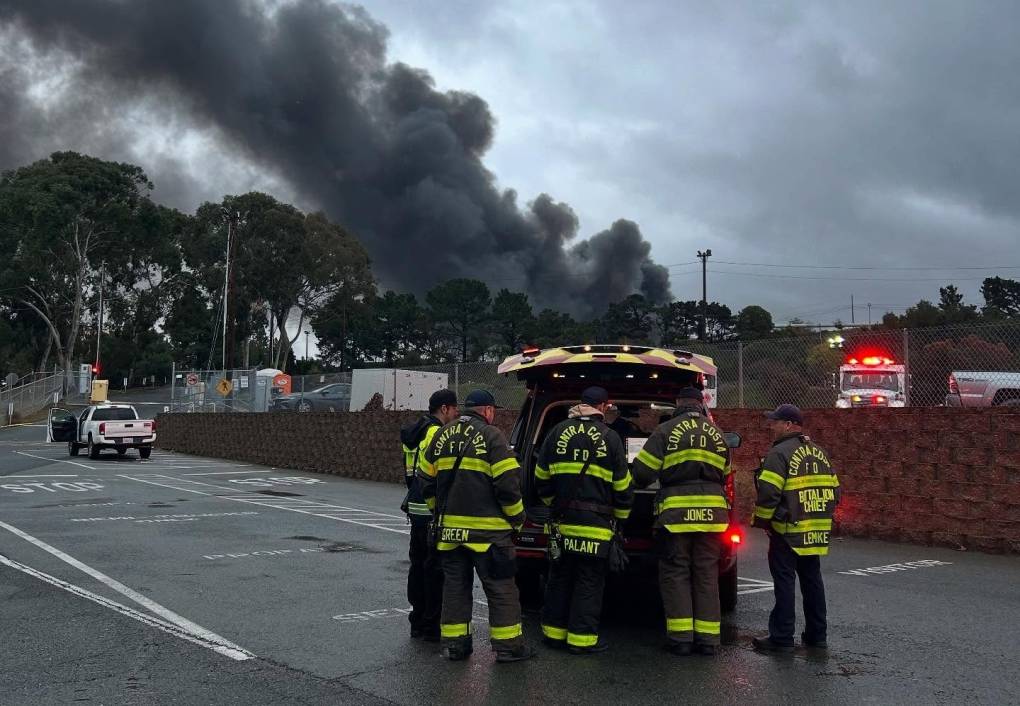According to the Environmental Protection Agency, petroleum refineries can release thousands of pounds of BTEX compounds — benzene, toluene, ethylbenzene and xylene, as well as carbon monoxide, hydrogen sulfide and sulfur dioxide — each year. Many of these are known or suspected to cause cancer and developmental or reproductive problems and worsen pre-existing respiratory conditions.
“There can be potentially more risk for people living nearby because they have chronic exposure to hazardous chemicals and then these spikes of exposure that could exacerbate many different types of health risks,” said David Gonzalez, an assistant professor at the UC Berkeley School of Public Health. “This is something that people living near the refinery have been calling attention to for a long time.”
Saturday’s fire was the third major incident at the Martinez refinery since Shell sold it to PBF Energy in 2020.
In 2022, the refinery released nearly 50,000 pounds of powdered industrial chemicals into the air. There were also more than a dozen notices that hazardous materials were released or spilled by the site in 2023, and flaring occurred at least three times last year.
Martinez Refining Co. said in a statement that it would investigate the root cause of the fire and apologized “for the disruption and concern” it caused to the community.
However, many residents want the site to be shut down, and some, like Samantha Viano, are hoping local officials will step in to make sure this trend doesn’t continue.
“It just seems like this kind of stuff is happening more and more, which is really scary,” said Viano.
Most of her extended family lives in Martinez, and she said in her 30 years in the city, there have been many spills, but only one other shelter-in-place order.
“How are they going to stop this from happening?” she said. “Because I think the whole community is really scared now.”
KQED’s Sara Hossaini contributed to this report.


